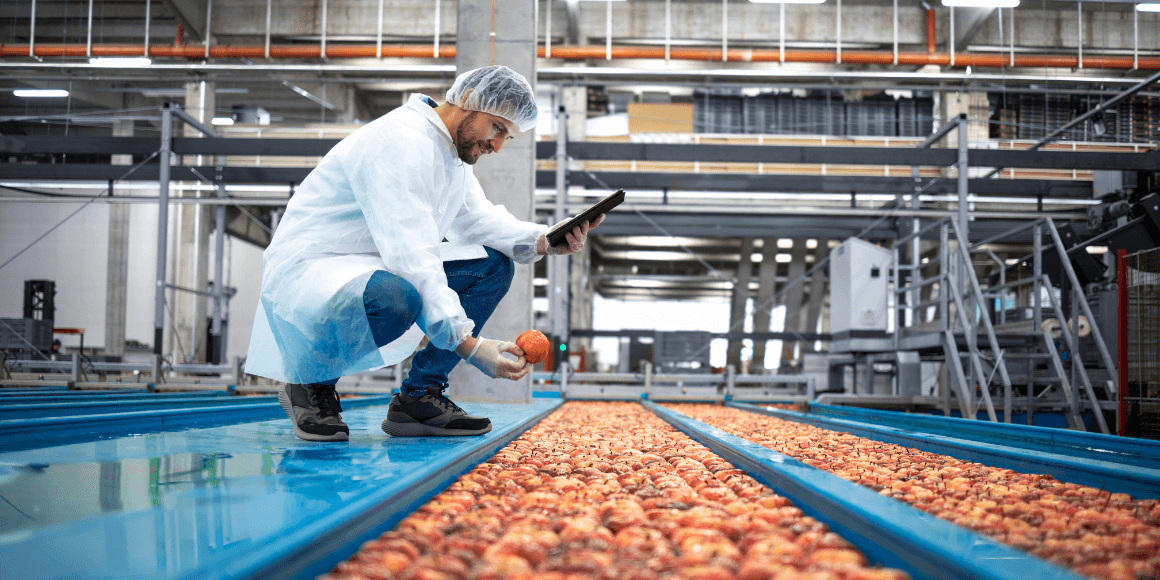 Organic food producers face the same food sanitation issues as their non-organic counterparts. In food processing facilities, producers must regularly sanitize the environment to keep pathogens at an acceptable level. In facilities that process organic food, producers must take extra care to ensure that no prohibited substances are introduced. This is why it is essential to choose the right products and follow the recommended protocols.
Organic food producers face the same food sanitation issues as their non-organic counterparts. In food processing facilities, producers must regularly sanitize the environment to keep pathogens at an acceptable level. In facilities that process organic food, producers must take extra care to ensure that no prohibited substances are introduced. This is why it is essential to choose the right products and follow the recommended protocols.
What Is Organic Food?
To be certified as organic by the United States Department of Agriculture (USDA), food must meet criteria for soil quality, animal raising practices, pest and weed control, and the use of additives. Produce must be grown in soil free of prohibited substances applied for at least three years. Animals must be fed organic food, not given hormones or antibiotics, and raised in environments that support their natural habits. Processed food must not have artificial preservatives, colors, or flavors.
Additionally, those handling organic goods “must prevent the commingling of organic with non-organic products and protect organic products from contact with prohibited substances.” This can present unique challenges for facilities that process organic and non-organic foods. Because organic food is regulated by both the USDA and local certification bodies, it is critical to follow all applicable regulations when handling and processing organic food products.
How Does Organic Certification Impact Plant Sanitation?
One of the primary concerns around sanitizers in organic food production is the potential for residue to be left behind and come into contact with organic food. Because of this, both products and their application methods are under scrutiny. All organic food producers must have a written sanitation plan, including a list of selected cleaners and sanitizers. A safety data sheet (SDS) is also required for products that will be used on food-contact surfaces. Organic inspectors will verify that the methods described in the plan are being adhered to and that only the products listed are used.
Are Quats Allowed in Organic Food Processing?
Quaternary ammonia-based sanitizers, also known as quats, are allowed in organic food processing facilities. However, they can leave an antimicrobial residue behind, so producers must rinse treated surfaces with potable water. Certifying bodies may also require a procedure that confirms residue is removed before reintroducing organic food into the production area.
Benefits of D7
D7 is a unique sanitizer used in various industries, including food processing facilities. Part 1 of the three-part formulation contains a quaternary ammonium compound suitable for use in facilities that process organic foods when used per the label instructions, including a potable water rinse. The three-part sanitizing and disinfecting system contains active ingredients that synergize into a unique compound when combined.
The product can be applied as an expanding foam that visibly covers all surfaces and reaches unseen areas where bacteria grow and thrive. The foam clings to overhead and vertical surfaces to ensure the product remains for the minimum recommended contact time, which can be challenging with liquid products.
D7 can also penetrate biofilm without the need for mechanical scrubbing, making it an efficient and cost-effective solution for biofilm removal. A potable water rinse is required for all applications (organic and non-organic) to ensure that no residue is left behind.
Use D7 in Your Organic Food Processing Facility
D7 is suitable in almost all food processing applications, including organic food processing facilities. We understand the challenges of meeting food sanitation requirements and balancing food production demands, which is why we provide demonstrations of D7 in your facility so you can see the product in action. If you want to learn more about using D7 in your facility, contact us to schedule a consultation.

